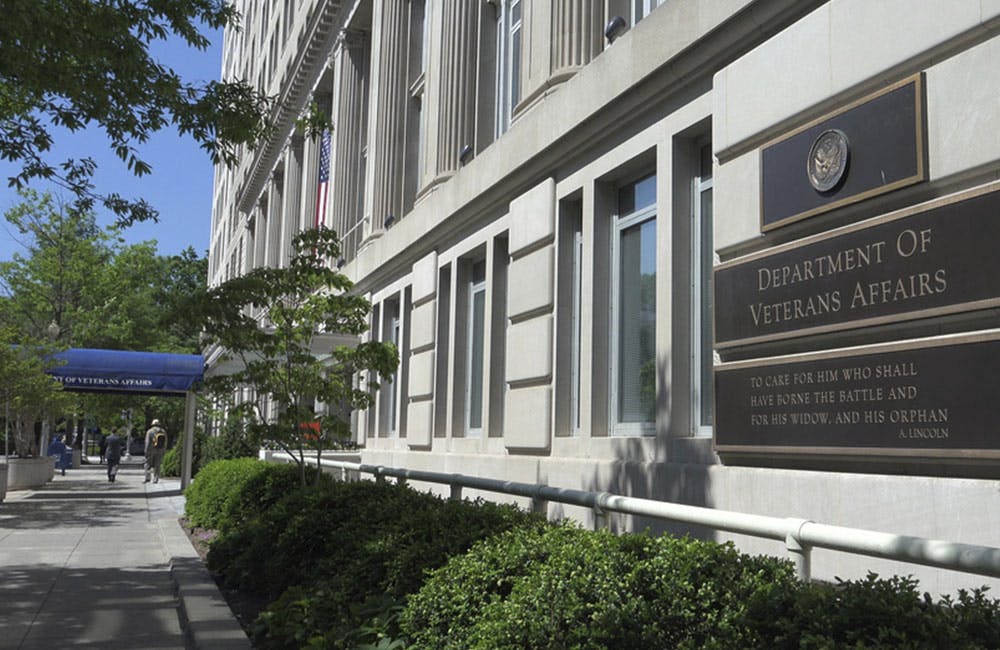AI Executive Order Directs Health Agencies to Address Safety Concerns
Within 90 days of the order, the Department of Health and Human Services must establish an AI task force.

The Biden-Harris Administration issued a landmark executive order on Monday that outlines best standards and practices to assure the safe, secure and trustworthy use of artificial intelligence. The comprehensive strategy establishes the first set of standards for AI use throughout the healthcare ecosystem.
The order builds on previous administration efforts like the AI Bill of Rights to drive safe, secure and trustworthy development of AI. During the executive order signing ceremony, Biden described the order as “the most significant action, any government anywhere in the world has ever taken on AI safety, security and trust.”
The plan calls on the Department of Health and Human Services (HHS) to create a safety program that will receive reports, analyze harmful AI-related health care practices and develop resources to establish AI educational tools. In addition, the order also pushes for the advancement of the responsible use of AI during the development of life-saving drugs.
Dr. Heather Ross, clinical associate professor in the School for the Future of Innovation in Society and the Edson College of Nursing and Health Innovation at Arizona State University, said that AI puts several key interests at stake including national security, economic development and individual safety.
“The executive order is an important tool to direct attention to AI development, both by signaling that it is a federal priority and by directing the use of federal resources to the work,” Ross said in an interview with GovCIO Media and Research. “The challenge here is to make policy that will be relevant and supportive to each of those competing interests in both the short-term future and the long-term future, even as the technology itself continues to evolve.”
With urgency in mind, the order gives HHS a 180-day timeline to provide a strategy on if AI technologies in the health sector can “maintain appropriate levels of quality.” For health care agencies, these priorities are essential as patient safety and privacy are on the line.
The order also calls for collaboration across the nation’s largest health care systems. Within 90 days, the secretary of HHS, the secretary of the veteran affairs and the secretary of the defense, must create an HHS AI Task Force. One year following its creation, the task force will outline a plan that informs the responsible, “deployment and use of AI and AI-enabled technologies in the health and human services sector (including research and discovery, drug and device safety, healthcare delivery and financing, and public health).”
“Our team is hard at work exploring how AI can help VA make better, faster, and more-informed decisions — improving Veteran health outcomes and benefits decisions while eliminating redundant administrative tasks. AI solutions can also help us reduce the time that clinicians spend on non-clinical work, which will get our clinicians doing more of what they love most: caring for Veterans,” said a Veteran Affairs spokesperson in a statement to GovCIO Media and Research.
Many experts are concerned about the immediate and long-term threats that AI could cause throughout the health care ecosystem.
“At the end of the day, what the federal government does with healthcare AI governance now will either improve health equity or create bias-driven harm that threatens the health of vulnerable populations and, ultimately, the future of the United States,” said Ross.
“We already know that AI systems impose significant civil rights dangers in areas like health care and housing and hiring. In these areas and others, the president directs the development of new standards to manage these ethics,” said White House Special Advisor Ben Buchanan during a virtual White House press briefing on Monday.
While the executive order puts standards and policies in place for health care agencies, the White House says they have no plans to stifle the innovation of AI.
“[The] President believes deeply that we need to have a dynamic, innovative and competitive AI ecosystem,” Buchanan said.
This is a carousel with manually rotating slides. Use Next and Previous buttons to navigate or jump to a slide with the slide dots
-

White House Science Chief: US-Driven AI Sets Global Standards
Michael Kratsios outlined how American AI technology on the global stage will help standardize the tech and counter China’s influence.
5m read -

Modernizing Critical Infrastructure in the Face of Global Threats
Officials are expanding the latest strategies in boosting defense infrastructure, including securing satellite communications, upgrading enterprise-wide technology, optimizing data management.
20m watch -

Trump AI Orders Call for Speed in Building Infrastructure
The directives call for expanding AI infrastructure, streamlining federal permitting and promoting AI exports.
4m read -

DOD Accelerates Software Modernization with Agile DevSecOps Push
The Pentagon's software implementation plan tackles cultural hurdles and integrates security early to deliver critical capabilities faster.
6m read -

White House Unveils AI Action Plan to Secure Global Dominance
The strategy outlines steps to accelerate private sector innovation, build critical infrastructure and advance U.S. leadership in AI policy and security.
3m read -

VA's Platform One Powers Rapid Innovation to Bolster Digital Services
VA's Platform One accelerates software development timelines from weeks to hours, ultimately enhancing digital services for veterans.
5m read -

Opinion: Original Intelligence Is the Missing Piece for AI Transformation
Limitations of AI agents and development drive growing needs for workforce development and "original intelligence."
3m read -

Pentagon's $200M AI Contracts Signal Broader Effort to Transform Talent
The Army is leveraging Silicon Valley, reservist programs and new hiring strategies to integrate critical digital skills in its ranks.
5m read -

AI Foundations Driving Government Efficiency
Federal agencies are modernizing systems, managing risk and building trust to scale responsible AI and drive government efficiency.
43m watch -

Agencies Tackle Infrastructure Challenges to Drive AI Adoption
Federal agencies are rethinking data strategies and IT modernization to drive mission impact and operational efficiency as new presidential directives guide next steps.
5m read Partner Content -

Generative AI Demands Federal Workforce Readiness, Officials Say
NASA and DOI outline new generative AI use cases and stress that successful AI adoption depends on strong change management.
6m read -

The Next AI Wave Requires Stronger Cyber Defenses, Data Management
IT officials warn of new vulnerabilities posed by AI as agencies continue to leverage the tech to boost operational efficiency.
5m read
















